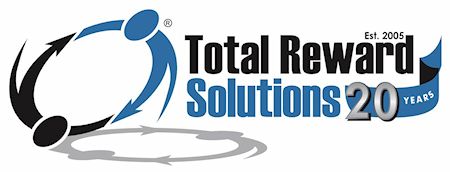Compensation Corner: Compensation Budgeting is Essential for Effective Employee Total Rewards

As one of our strategic partners, we want you to know that compensation budgeting is often misunderstood, underemphasized and oversimplified. Many employers tend to factor in only an employee’s annual salary and benefits when considering personnel costs. But this shortsighted approach can lead to a budget shortfall and employee dissatisfaction – two critical errors that can threaten a company’s operations, culture, profitability and survival. Successful compensation budgeting requires a more comprehensive approach, for the good of the employee and the company. Here’s what you need to know:
Effective Compensation Budgeting Has Many Components
Compensation budgeting doesn’t have to be overly complex, but it should be realistic and comprehensive enough to encompass key areas of an employee’s total rewards.
You will want budget for merit pay, equity pay, promotional/career development pay, bonuses, and other miscellaneous pay items. You can establish separate line items for each area or keep them together in one budget. However, separate line items do make it easier to track and ensure the dollars budgeted for each area are dispensed appropriately.
So, what should you consider in each area as you develop your compensation budget? Let’s dig deeper:
Merit Pay
You’ll need to consider both external and internal factors when determining your merit budget. Internal considerations include factoring in what your organization can afford, your market competitiveness position (where your organization stands relative to your industry market), what benefits and technology improvements you are implementing, and what additional training you are funding. External factors include understanding the average market increase for your industry. Be careful, however, to avoid the common mistake of merely setting your merit level budget at the market average. Evaluate all internal and external factors first, and then determine your merit budget.
Equity Pay
These budget dollars are used to give pay increases to employees whose pay is falling too far behind market due to significant market shifts. These are also referred to as market increases. Equity pay funds are also used to correct any compensation discrimination problems or issues with internal equity (how employees compare to one another in the same or similar roles). Most organizations rely on lagging data (how many dollars they have used each year to correct equity issues), or they use market benchmarking, internal equity analysis and discrimination analysis to determine budget dollars needed here.
Promotional/Career Development Compensation
Most organizations budget about ½ to 1% of total salaries to fund traditional promotions and/or career development pay. Career development pay addresses rewards for employees for increasing skills and responsibilities which may not necessitate a grade change, but is, in fact, a career development change.
Bonuses
Some organizations budget for bonuses at the 100% target payout amount. Others will budget on the percent of target historically paid out. Either way, it is important to assess quarterly where this projected payout stands to ensure that enough dollars are budgeted. For example, if the organization is having an extremely good year and you determine at the end of quarter three that bonuses are going to pay out at 110% or 120%, you might need to immediately increase your budget line for bonuses.
Other Pay
And finally, you will want to consider and budget for all other types of pay relevant to your organization. Examples would be sign-on bonuses, guaranteed draws, shift differentials, geographic differentials, and hazard pay.
Bottom Line:
Thoughtful and comprehensive compensation budgeting can eliminate nasty surprises, give you essential data to manage your business, and help keep employees motivated and committed to company success. While some companies try to save time by keeping their compensation budgeting processes too simplified, they might risk frustrating their employees and undermining the organization’s financial success. As you probably know, at Total Reward Solutions, we can help you understand the many facets of compensation budgeting, and help you perform internal and external analyses necessary to budget the appropriate amounts for your workforce. To learn more, contact us today at 317.589.8529.
Cassandra Faurote
About Total Reward Solutions:
Have a referral for us? Total Reward Solutions is your trusted partner for compensation and benefit services. As you recall, Total Reward Solutions offers a broad range of compensation, benefits, performance management, and reward/recognition consulting services to help your organization attract top talent, motivate employees and retain top performers. We can partner with you on a project basis, on retainer, or as your total outsourced solutions provider for compensation services.
Call us today at 317.589.8529 to discuss how we can help your organization develop and implement competitive and effective compensation and total reward programs.
